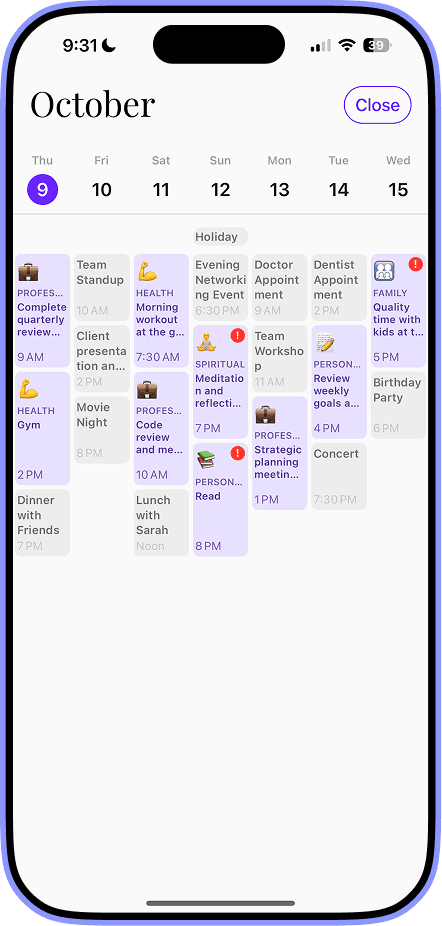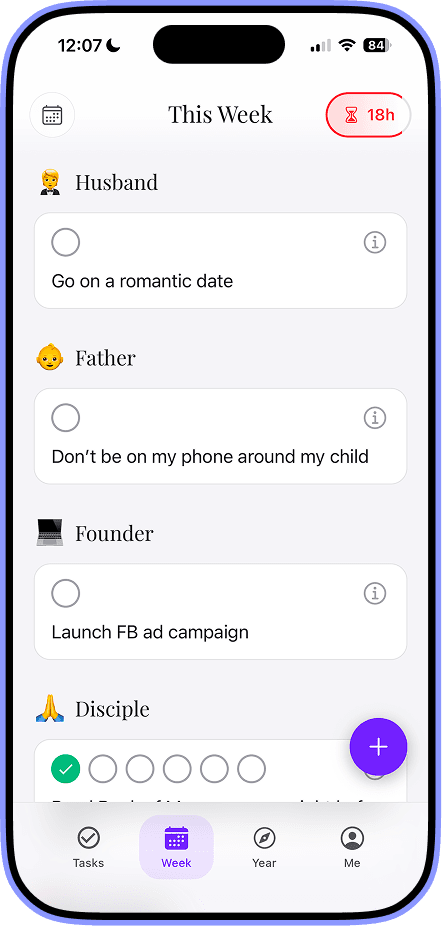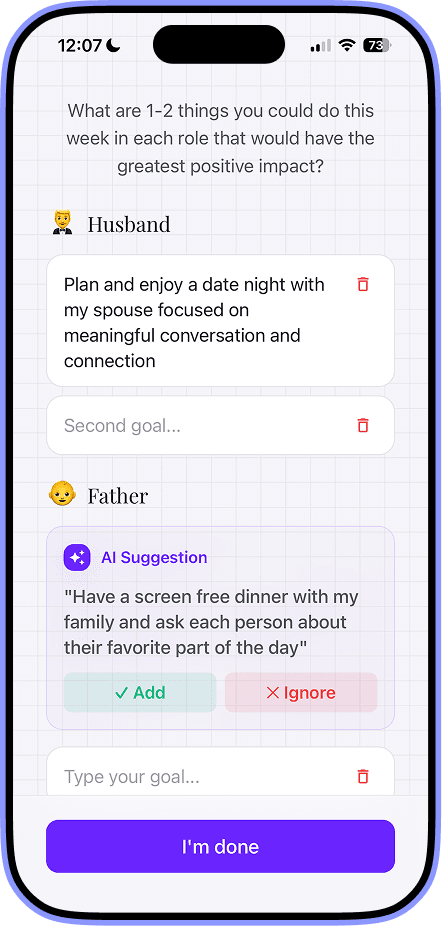How to Stay Consistent and Achieve Your Goals
Tired of falling off track? Learn how to stay consistent with powerful mindset shifts and actionable strategies that build habits for lasting success.

Let's be honest: the secret to being consistent has almost nothing to do with sheer willpower. It's really about having the right system in place. The whole game changes when you start breaking down big goals into smaller pieces, building tiny, repeatable habits, and using smart tools to put a lot of it on autopilot. This way, consistency just becomes the natural way you do things, instead of something you have to force every single day.
Why Consistency Feels So Impossible
Have you ever jumped into a new goal, full of excitement, only to watch that fire burn out in a few weeks? You’re definitely not alone. The real reason most of us struggle to stay consistent isn't because we're lazy or lack discipline—it's because we're playing a rigged game with a broken system.
We’re often told to "dream big," which leads us to set these massive, life-altering goals. The problem is, this approach pretty much guarantees failure. It depends on a huge burst of motivation that’s impossible to keep up, and it almost always ends in burnout and disappointment.
The All-Or-Nothing Trap
One of the biggest mental roadblocks I see is the "all-or-nothing" mindset. You tell yourself you're going to hit the gym five times a week, no exceptions. But then a crazy day at work happens, you miss one session, and suddenly you feel like a total failure. That one tiny slip-up can completely derail you, turning a minor hiccup into a full-blown excuse to quit.
The truth is, consistency is a skill you build with smart, flexible systems—it’s not some magic personality trait you either have or you don't. It's all about progress, not perfection.
This is especially true when you're juggling a dozen other things in your life. The key is finding a rhythm that bends without breaking. We actually dive deep into this with practical strategies in our guide on balancing work and family life.
The Myth of Rapid Habit Formation
Another major hurdle is the popular idea that you can lock in a new habit in just 21 days. It's a nice thought, but it’s a total myth. Modern neuroscience tells a different story: it takes closer to 66 days on average for a new behavior to become automatic. For some, it can take as long as 254 days.
The real takeaway here is that the consistency of the action matters far more than the speed. It's about showing up, day after day, even when it's small.
Once you see these common traps for what they are, you can stop chasing perfection and start building a resilient, practical system that actually supports your goals—even on the days you feel zero motivation.
Below are some of the most common consistency killers I’ve run into personally and with clients, along with some simple fixes that work in the real world.
Common Consistency Killers and Realistic Fixes
| Obstacle | Why It Happens | Realistic Fix |
| Goal Is Too Big | We get pumped by a massive vision but overwhelmed by the giant first step. | Break it down. Want to run a marathon? Start by running for 5 minutes. Make the first step ridiculously small. |
| "I Broke the Streak!" | The all-or-nothing mindset makes one missed day feel like a total failure. | Adopt the "Never Miss Twice" rule. Life happens. The goal isn't a perfect streak; it's getting back on track immediately. |
| No Clear Plan | Vague goals like "get healthy" or "be more productive" have no clear action. | Be specific. Instead of "get healthy," try "drink a glass of water after waking up" or "walk for 10 minutes at lunch." |
| Ignoring Your Energy | You try to force a high-energy task (like a workout) when you're drained. | Match the task to your energy level. Have a low-energy task ready, like planning tomorrow's to-do list or tidying your desk. |
These aren't earth-shattering changes, but that's the point. Small, intelligent adjustments are what build a foundation for lasting consistency.
Designing a System That Works for You
Let's be honest, most generic advice on "being consistent" falls apart within a week. Why? Because it's not about forcing yourself into a plan you secretly hate. Real, lasting consistency comes from designing a system that works for you, making the good habits feel like the easiest choice.
It’s less about willpower and more about engineering your life for success.
A simple way I've found to do this is with habit stacking. You just anchor a new habit you want to build onto one that’s already set in stone. Want to squeeze in a 15-minute workout but can never "find the time"? Try stacking it with your morning coffee. The new rule is simple: "Right after my first sip of coffee, I'll start my workout." No more decision-making.
Another fantastic technique is time blocking. You literally treat your priorities like can't-miss appointments. Instead of a vague goal like "work on my project," you carve out a specific slot in your calendar for it—say, 9:00 AM to 10:00 AM every Tuesday. That time is now sacred.
This is all about moving from scattered, inconsistent actions to a system that runs smoothly on its own.
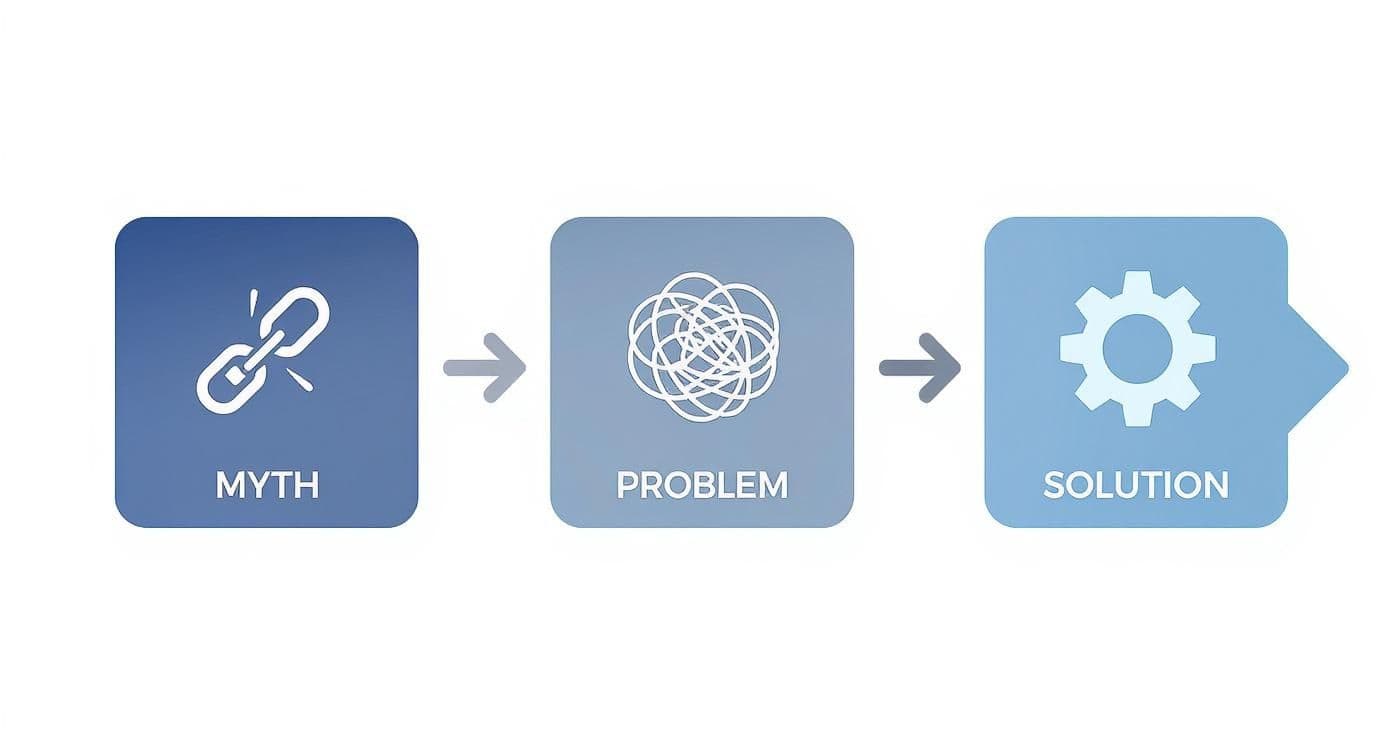
The big takeaway here is that consistency isn't just a switch you flip. It's a system you build, piece by piece, by replacing old habits with intentional, connected actions.
Removing Friction and Finding Your Why
To make any system stick, you have to hunt down and eliminate friction—anything that makes the right choice harder. If you want to hit the gym in the morning, lay out your clothes the night before. If your goal is to eat healthier, get your meals prepped over the weekend. Every little barrier you remove makes it that much more likely you'll follow through.
A lot of people find that using one of the best habit tracking apps is a great way to monitor their progress and stay accountable.
But here’s the most important part: your system needs a powerful 'why' to keep it going. When motivation fades—and it will—your reason for starting is the only thing that will pull you through. What is it? Your health? Your family? Your career? Get crystal clear on that.
Putting all of this together into a real, workable framework is key. If you want to go deeper on this, check out our guide on https://www.useharmony.com/blog/how-to-create-action-plan. When you combine a strong 'why' with a low-friction system, you create consistency that actually lasts.
Let AI Be Your Consistency Partner
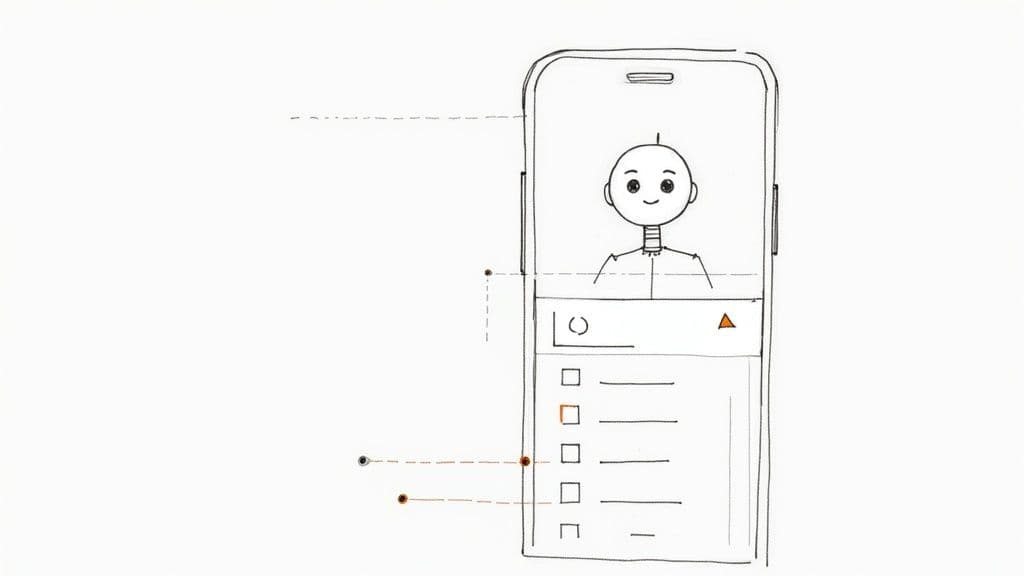
Let's be honest. The mental energy it takes to track every new habit and manage an endless to-do list is exhausting. It's often the biggest reason our best intentions fall apart. Trying to juggle it all in your head is a recipe for burnout.
This is where technology can stop being a distraction and become your most reliable ally. A good tool can act as your personal accountability partner, taking over the tedious parts of staying on track so you can pour your energy into doing the work. You get an intelligent system, not just another list.
Let AI Handle the Heavy Lifting
This is exactly where an app like Harmony AI changes the game. It’s built to put the systems we’ve been talking about into practice, turning abstract strategies into concrete, daily actions. By offloading the logistical grunt work to AI, you get your mental bandwidth back.
Here's how it actually works in real life:
- Automate Habit Stacking: Set up smart, recurring reminders that physically link your new habits to existing routines. It makes them almost impossible to forget.
- Break Down Goals: Got a big, overwhelming goal? Use the AI assistant to break it down into small, actionable steps that get scheduled right into your week.
- Visualize Your Wins: The app tracks your progress with analytics that actually mean something. Seeing how far you’ve come creates a powerful feedback loop that keeps you motivated.
This isn't just a Harmony thing; it's a core idea behind many modern AI-powered productivity tools that focus on reducing friction to improve follow-through.
When you delegate the planning, reminding, and tracking, consistency stops being a daily struggle. It becomes a background process. The goal is to make showing up the easiest possible choice.
Ultimately, using a smart partner like Harmony AI isn’t about replacing your effort—it’s about amplifying it. It makes sure your system is working for you, even on days when you just don't feel like it, turning good intentions into consistent, measurable progress.
Mastering the Mindset of Consistency
Even with the best system in the world, your mindset is the final piece of the puzzle. It’s what separates a plan that sticks from one that fizzles out after the first real challenge. Let's be honest, progress is never a straight line, and building mental resilience is your key to navigating the messy reality of habit formation.
A perfect strategy on paper means nothing if your internal dialogue isn't on board. This is where you learn to show up even when the motivation has packed its bags and left for the day.
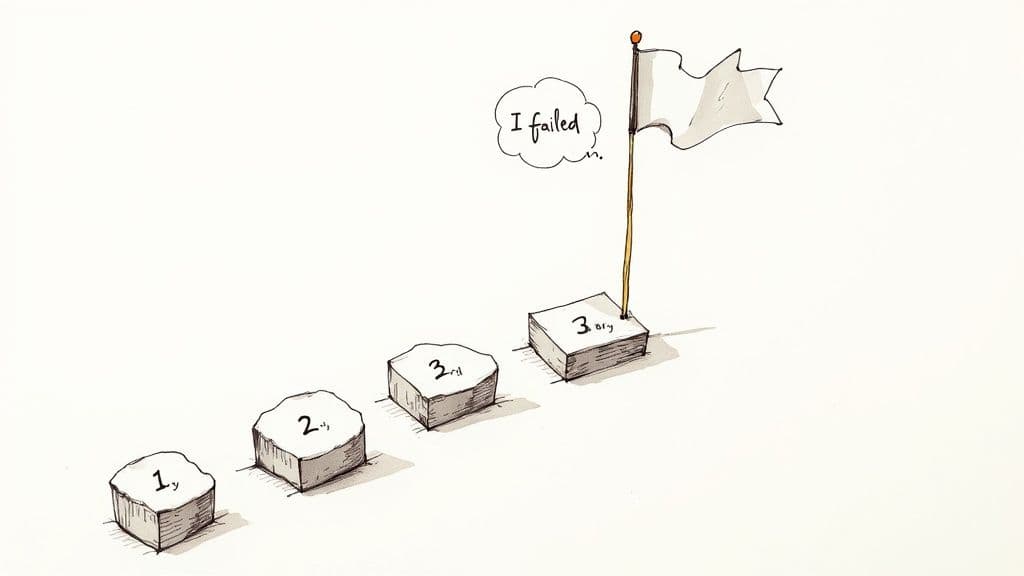
Adopt the Two-Day Rule
I’ve found one of the most powerful mental models for consistency is the two-day rule. It’s incredibly simple: you can miss one day, but you are never allowed to miss two days in a row.
Life happens. Sick days, emergencies, and moments of pure exhaustion are unavoidable. This rule gives you the grace to be human. It stops a single slip-up from spiraling into giving up entirely. Missing one day is an anomaly; missing two is the start of a new habit you don't want.
Cultivate a Growth Mindset
How you talk to yourself after a setback is a massive indicator of your long-term success. If you have a fixed mindset, you see a missed workout or a day of poor eating as a total failure—proof that you just can't do it. That thinking is a fast track to quitting.
A growth mindset, on the other hand, reframes setbacks as data.
- You didn’t fail; you just learned that a 5 AM workout is too ambitious right now.
- You didn’t give up; you discovered that a stressful workday is a trigger for procrastination.
Every "mistake" is actually just a valuable insight. You can use it to adjust your approach and make your system stronger. It’s about learning and iterating, not just executing perfectly from day one.
Consistency isn't about being flawless. It's about your commitment to getting back on track after you stumble. Your resilience, not your perfection, is your greatest asset.
Celebrate Small Wins
The human brain is wired to repeat actions that feel good. So, a crucial part of building a consistent mindset is creating a positive feedback loop by celebrating the small, incremental wins. This isn't about throwing a party for every task you complete, but simply acknowledging your effort.
Did you stick to your focused work block for 30 minutes? That's a win. Did you choose the healthier snack? Another win. Taking a second to acknowledge these moments releases a little bit of dopamine, which reinforces the behavior and makes you want to do it again.
This is where a tool like Harmony AI can be a game-changer, especially when your internal motivation is running low. The app is designed with these principles in mind, offering up celebratory confetti and progress tracking that automatically highlights what you've accomplished. It gives you that little external nudge of positive reinforcement, helping you build a self-sustaining cycle of motivation and consistent action. You never lose sight of how far you've come.
Applying Consistency to Your Financial Goals
When you start applying the idea of consistency to your personal finances, you really see its power come alive. These small, disciplined habits aren't just a good idea; they're the bedrock of long-term financial stability and growth. They’re what turn a vague dream of "being wealthy" into an actual reality.
Learning to be consistent with your money is all about building a system that works for you, especially when you're tempted to splurge or facing economic stress. It’s a common struggle. Recent research shows that while 67% of people feel optimistic about their finances, 56% are still worried about stability. On top of that, 42% are planning to cut back on non-essentials.
What do these numbers tell us? There's a huge gap between what we want to do and what we actually do, day in and day out.
Automate Your Financial Habits
Honestly, the easiest way to stick with your financial plan is to take yourself out of the equation. Just automate it. Set up automatic transfers to your savings or investment accounts for the day you get paid. This "pay yourself first" trick is a game-changer because it removes willpower from the process.
Another tip I've found incredibly useful is using a budgeting app—not to obsess over every penny, but just to build awareness. A quick check-in once a week can show you spending patterns you never even knew you had. This lets you make small, consistent tweaks instead of drastic, burnout-inducing cuts.
And if you're serious about financial consistency, a crucial first step is understanding long-term investing. The entire strategy is built on the power of making repeated, patient moves over a long period.
The goal isn’t to achieve financial perfection overnight. It's about creating a simple, repeatable system where small, positive actions become your default, compounding into real security over time.
This is where a tool like Harmony AI can be a huge help.
Instead of trying to remember to check your budget or track your savings goals across different apps, you can bake these financial check-ins right into your weekly plan.
- Set a recurring task to review your spending.
- Schedule a block of time to research investments.
- Link your financial to-dos directly to your bigger life goals.
By connecting your money habits to your broader ambitions inside the app, Harmony AI helps you make sure your actions are always aligned with the future you’re trying to build. It’s your all-in-one planner for life, designed to help you build the systems that lead to real, lasting progress in your career, health, and finances.
What About When Life Gets in the Way?
Look, even the best-laid plans run into friction. Life happens. Questions pop up. You’re going to hit roadblocks on the path to being more consistent, and that's completely normal. Let’s tackle some of the most common snags people run into.
One of the biggest is the gap between what we say we’ll do and what we actually do. This isn't just you—it's a universal human thing. A 2025 report from GWI put this into perfect perspective: 58% of people claim they’re willing to pay more for eco-friendly products, but when you look at their recent actions, only 11% had bought a secondhand item online.
That chasm between intention and action shows up everywhere, from how we spend our money to how we tackle our personal goals. Getting a handle on this is the first step to building a system that actually works.
How Do I Stay Consistent When I Have No Energy?
This is the big one, isn't it? The key is to stop trying to force it. Stop fighting your own energy levels and start working with them instead. Not every day is going to be a "crush it" day, and that’s okay.
The trick is to have a "low-energy" version of your habit already planned out.
- Instead of: a full 45-minute gym session...
- Try: a 10-minute walk around the block or a few simple stretches in your living room.
The real goal isn't to hit a new personal best every single day. The goal is just to show up. When you have a ridiculously easy alternative ready to go, you keep the chain of consistency intact without draining your already low battery.
The most important part of building consistency is learning to be kind to yourself on the hard days. Progress isn't about perfection; it's about persistence. Lower the bar, do something small, and live to fight another day.
This approach keeps your momentum alive. And that momentum is worth far more than pushing yourself to the brink one day, only to give up entirely the next.
Ready to stop fighting for consistency and start building a system that actually fits your life? Harmony AI was designed to be your personal planning partner, helping you connect your daily actions to your biggest goals. It takes the tedious work out of staying on track so you can focus on what really matters.
Start living your mission, one well-planned week at a time. Discover Harmony AI today.
Harmony - AI Planner
Plan your weeks, plan your life. Define your mission, plan weeks around your roles, and stay on track every day with AI guidance.
Download FreePersonal Mission
Define your deeper why
Weekly Planning
Role-based goal setting
AI Guidance
Smart suggestions & nudges
Celebrations
Stay motivated daily
